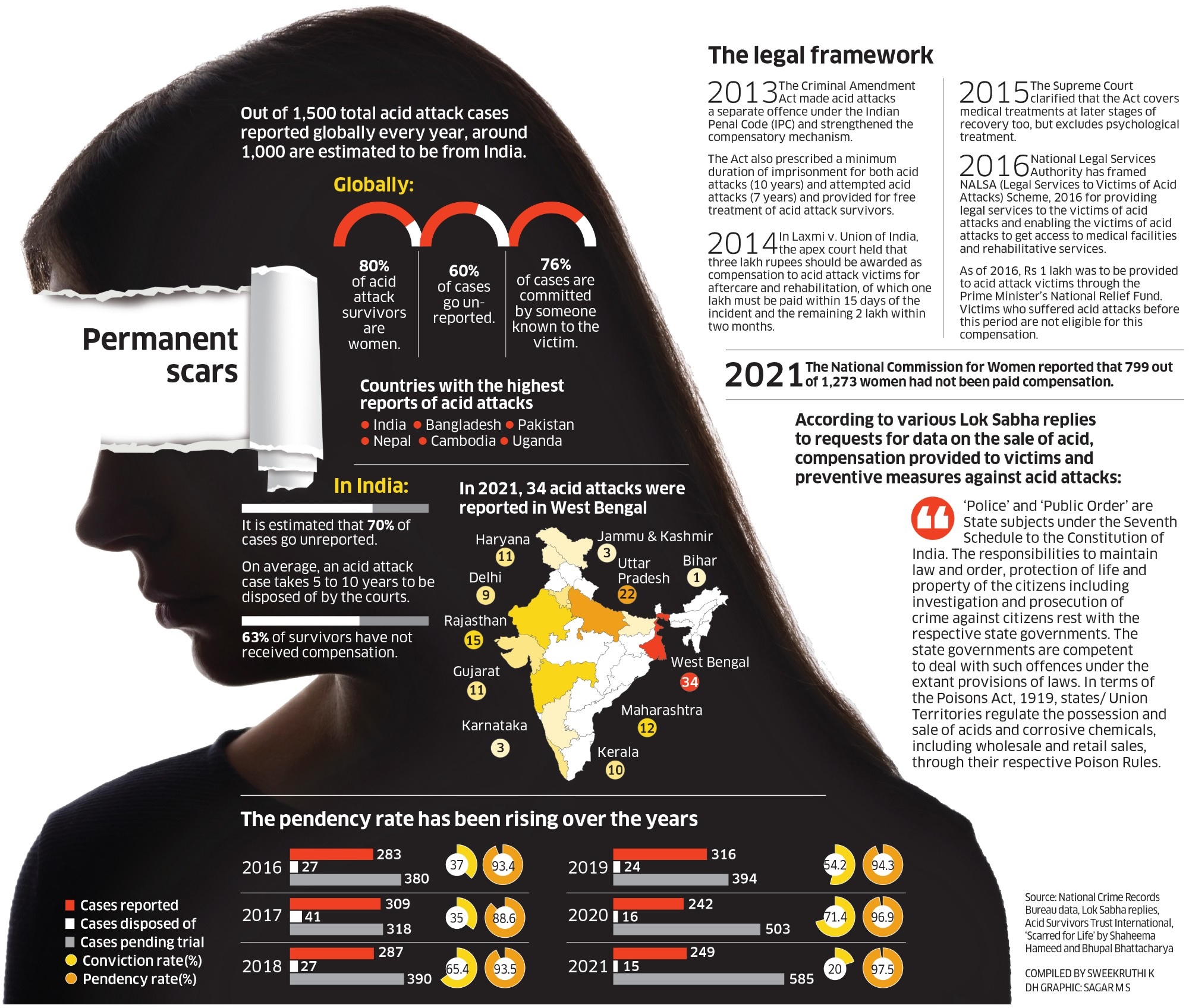7667766266
enquiry@shankarias.in
The recent attack on a girl with an acid-like substance in Delhi’s Dwarka by three assailants has once again brought back to focus the heinous crime of acid attacks and the easy availability of corrosive substances.
 What is the law on acid attacks?
What is the law on acid attacks?
References